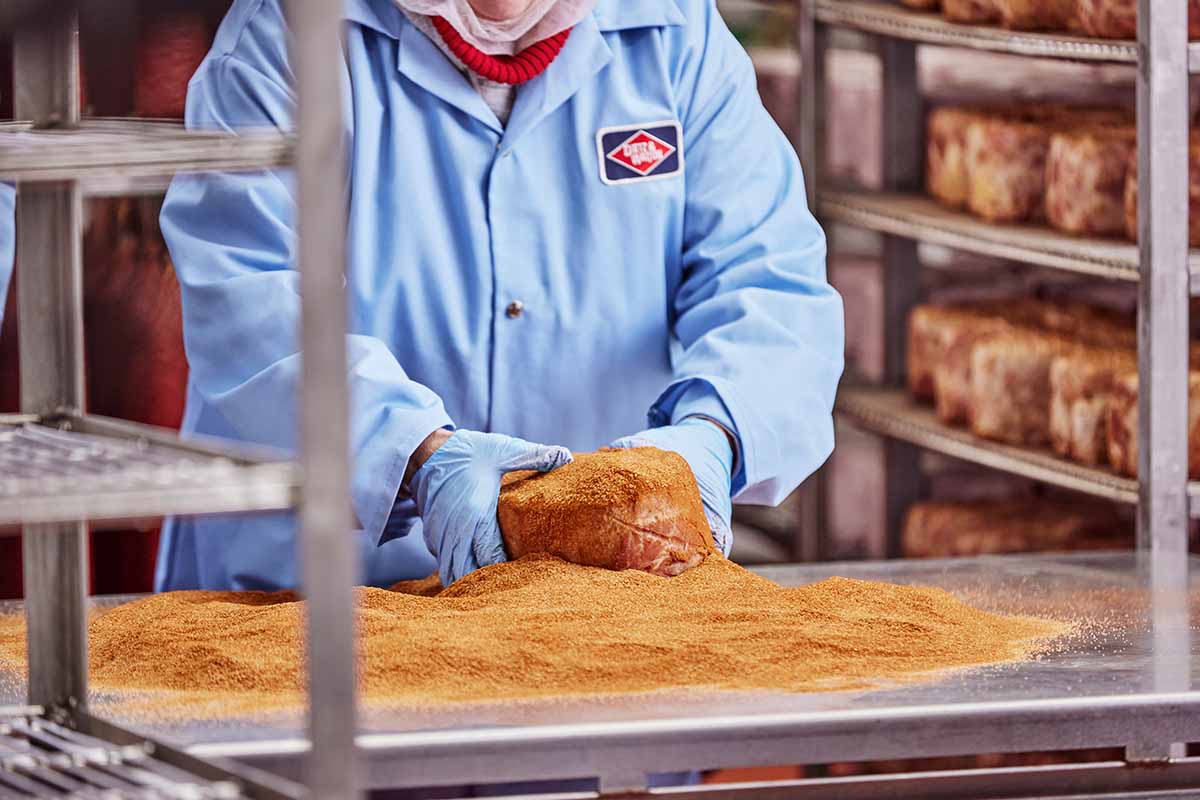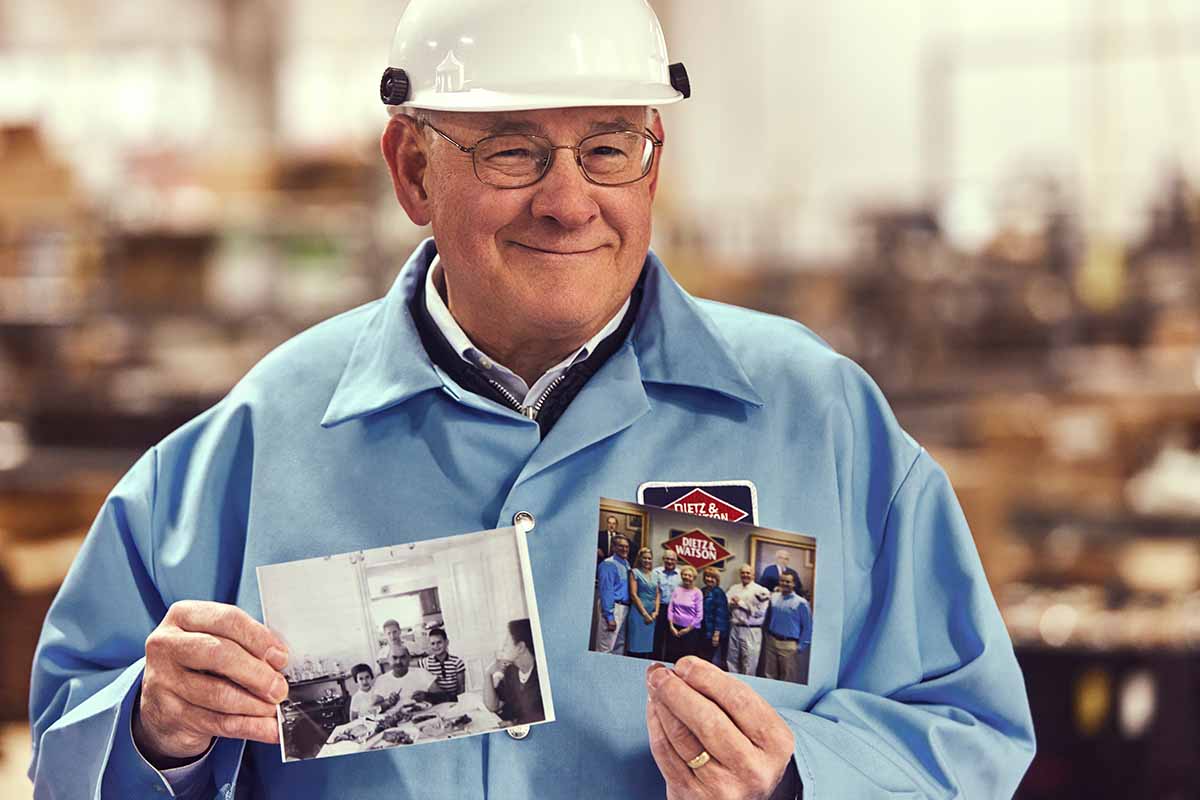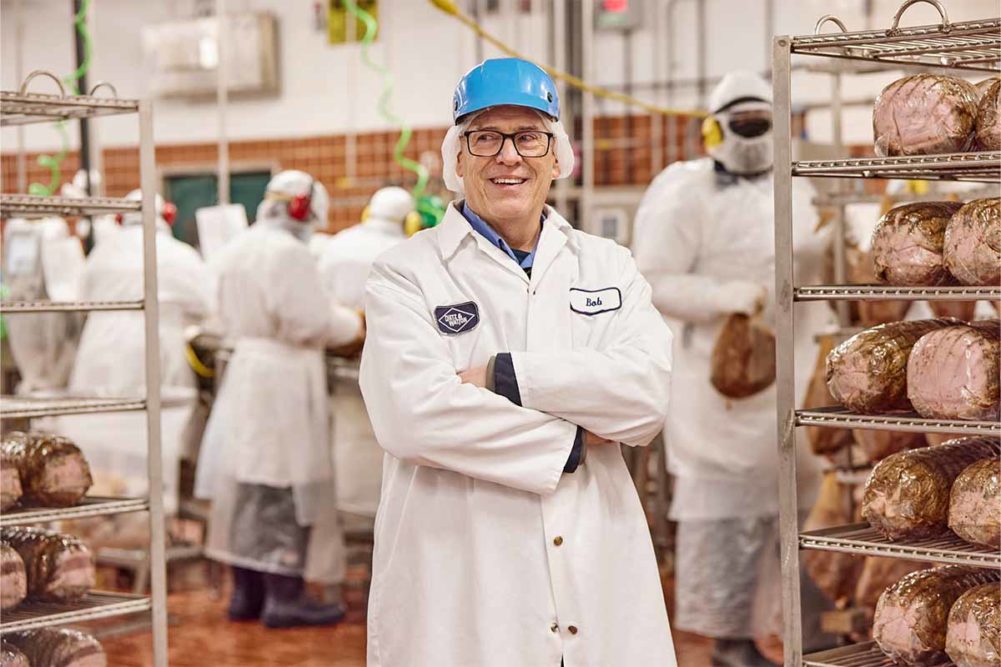Robert Seaver, vice president of Food Safety and Quality Assurance at the iconic Dietz & Watson Inc., maker of premium delicatessen meats, cheeses, and sausages, is retiring after serving more than 40 years with the company. The time he has spent there, starting a food safety laboratory, and creating the business’s quality assurance and food safety operations, is equal to half of Dietz & Watson’s existence.
“I thought about going to other places during my career, but nothing ever worked out,” Seaver said with a laugh. He began his career at a small meat testing lab, and he then answered a Dietz & Watson ad in the newspaper — they were looking for someone who could start a testing lab at the company.
The truth is, after arriving at Dietz & Watson in 1981, he never really wanted to leave the family-owned company, which has expanded with sales across the United States, and in other countries throughout the world. In fact, Seaver said he was always in Dietz & Watson’s “neighborhood.”
“I grew up down the street from Dietz & Watson — about 10 minutes from the plant’s current headquarters in Northeast Philadelphia,” he said.
Even today he lives nearby, in Bucks County in suburban Philadelphia. And there is no doubt that Seaver is a Philadelphia guy — his accent gives him away, and he graduated from Father Judge High School and later from Temple University with a bachelor’s degree in biology.
“The plant originally was in a different location, on Girard Avenue, and then we moved over here, where there was more room to expand,” Seaver explained. “At this building here, on Tacony Street, building expansion took place both inside and outside the original structure, and we’ve added onto it to this day.”
When Seaver began working at Dietz & Watson, as far as food safety and quality assurance goes, he was a one-man-show.
“They wanted me to create the food safety laboratory on site,” he said.
Seaver was responsible for developing and implementing testing protocols in-house and ensuring the US Department of Agriculture’s Food Safety and Inspection Service inspectors’ food samples complied with food safety regulations.
Because he was creating a new, on-site lab, Seaver was able to call on his training as a microbiologist to create classes designed to sample products for pathogens and then identify the type and confirm it.
“It is exactly what I was trained to do — biology, really microbiology and food.”
Today, as he prepares to leave the company for retirement, there are 19 people working in QA and food safety, as well as in product development.
And Philadelphia isn’t the company’s only plant location. All the poultry is processed at a plant in Baltimore, and there are distributors across the United States. “But we develop all the products here in Philadelphia,” Seaver said.
 Dietz & Watson employs more than 1,300 people across all its facilities and makes more than 500 different meat, poultry and cheese products. (Source: Dietz & Watson)
Dietz & Watson employs more than 1,300 people across all its facilities and makes more than 500 different meat, poultry and cheese products. (Source: Dietz & Watson)
Storied company
Dietz & Watson is one of the leading producers of premium deli meats, artisan cheeses, franks, sausages and related products in the United States. The company has more than 1,300 employees at all its facilities and around the country and makes more than 500 meat, poultry and cheese products.
The product portfolio at Dietz & Watson is vast, with products ranging from beef, ham, chicken and turkey deli to pickles and kraut, to charcuterie, to franks, kielbasa, and sausage, to bacon, ham steaks, soups and salads, retail and foodservice.
The story of Dietz & Watson began in 1922, with company founding great-grandfather Gottlieb Dietz fleeing the crumbling economy of post-World War I Germany and planting family roots in Philadelphia. He perfected his skills as a sausage-maker over almost two decades. He met Walter Watson, owner of The Watson Meat Company and developed his original bratwurst recipe before buying The Watson Meat Co. in 1939.
The original Dietz & Watson facility was located next to the Benjamin Franklin Bridge on the Delaware River in Philadelphia’s Old City, that connects the city and New Jersey. Old City is a historic neighborhood inspiring many of the family recipes that are still used by Dietz & Watson today.
The family-owned business is now in its fourth generation. The second generation was Momma Dietz (Ruth Dietz Eni) and Laura Eni, Gottlieb’s daughters, both deceased, and Ruth’s husband, Lou Eni Sr., who was chief executive officer of Dietz & Watson for many years.
The third generation of the family is heavily involved in managing the company today: Ruth’s children, Louis Eni, CEO, Chris Eni, chief operating officer, and Cindy Eni Yingling, chief financial officer. The current fourth generation working for the company includes Lauren Eni Canseco, Michael Eni, Tim Yingling, Greg Yingling and CJ Eni.
 Louis Eni, president and CEO of Dietz & Watson Inc., holds treasured family pictures. (Source: Dietz & Watson)
Louis Eni, president and CEO of Dietz & Watson Inc., holds treasured family pictures. (Source: Dietz & Watson)
Record of success
Seaver recalled what it was like getting the food safety program started at Dietz & Watson: “When I began there, they wanted to have finished products tested; how much water is in the product. USDA-FSIS would come in and do eight to 10 samples a week. But we would test hundreds of products. I conducted microbiology and micro-testing classes, took swabs, and identified the bacteria.”
The quality assurance and food safety vice president takes pride in many things he has achieved at Dietz & Watson, but perhaps the company’s sterling food safety track record is the biggest point of pride.
“We never had a manufactured product recall in the history of D&W, or on my watch.”
As the QA and food safety chief prepares to retire, he notes the company is building a new, expanded laboratory. There is a micro lab on the second floor of the building. The lab started with dry lab testing, then went on to microbial testing.
And speaking of dryness, that aspect is a very important part of the quality and safety aspects of Seaver’s many responsibilities at Dietz & Watson.
One reason is because many of the company’s products are premium deli meats and artisan cheeses, ready-to-eat products which can be vulnerable to a particularly hazardous pathogen, Listeria monocytogenes.
That is because Lm can be a threat to meat, poultry, and cheese products for which there is no further cooking or pathogen kill step. These kinds of products can also be vulnerable because this pathogen is not put off by refrigeration.
“So, one of the ways we deal with this factor as part of our sanitation efforts is to keep conditions in the plant as dry as possible,” Seaver explained. Using alcohol in the plant helps with the dryness and sanitation efforts. “In the slicing rooms, there is air conditioning, and that also helps to keep the air dry,” he said. At the same time, he says, there is no Listeria in the smokehouses.
In 1995 and 1996, after the E. coli outbreak at Jack in the Box, Seaver became involved heavily in setting up HACCP (Hazard Analysis Critical Control Point) plans and sanitation standard operating procedures, which were made mandatory by USDA, and dealing with a zero tolerance for pathogenic Listeria, which can be found in ready-to-eat products and zero tolerance for pathogenic E. coli.
He notes there are advantages to working for a company that can devote a large amount of time and resources to food safety, quality assurance and product development.
Did the job get to be the same after a while? “No, never the same. In fact, it has been different every day,” he said. “Every day when you come in, you know you’re going to discover different things you need to deal with, different issues, and different areas to check.
“Among many things, we check dates, how emulsification is going, in and out of the chopper. On the raw side of products, before they are cooked, we must check solutions, pH, specific gravity, and salt. For sausage, the total blends of ingredients for pre-blended sausage, the need to make sure we’re making the products right,” he said.
One perk the company offers its employees is the chance to sample the products it manufactures. Depending on an employee’s role, there are cafeterias where employees can sample products for lunch virtually every day. But that goes beyond being an employee benefit.
“Employees tasting products is one part of the company’s efforts to make the products a good experience for consumers before the products even leave the plant, bound for distribution, retail and foodservice.”
For Seaver, retiring is somewhat bitter sweet after working at a company he loves for the last four decades, and he doesn’t deny that he is sad about stepping away.
“Well, yes, in a way, but I’m ready to go; I’m 65. Most people, I think, know when it is time to retire. You get a feeling about it, I think, that you have been there long enough; it is time to move on and do something else with your life,” he said, laughing. “But in a sense, people who have worked for Dietz & Watson, especially if they have been here for a long time, don’t really think about working anywhere else, and are very content to stay here. And I’m very proud of what I have done here.”



